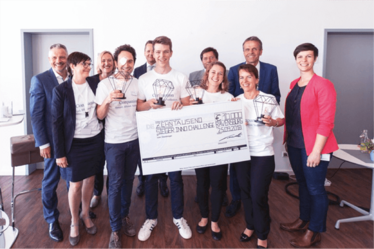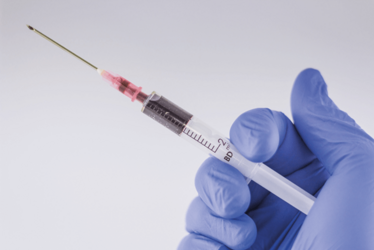Injectable Innovation
A company looks to give the humble injection an inventive makeover with a new competition
What?
Contract Development and Manufacturing specialist Vetter recently launched a competition called the “Open Innovation Challenge – Injection 2.0” – and the winners have now been announced. Four teams submitted their best ideas to be in with a chance of winning a prize of €10,000.
Why?
“Vetter is always looking for new pathways that can help further develop the injection process,” says Claudia Roth, Vice President of Innovation Management at Vetter. The core question of the competition was, how can can digital trends be used purposefully in regards to the application of injection systems?
“The goal of the challenge was to develop innovative, future-focused and sustainable ideas for the injection of medicines that are better streamlined to user needs than current methods,” adds Roth.


Who?
Four multi-disciplinary teams (made up students, medical, economic professionals, and Vetter staff) participated in workshops and field-work. The initiative followed a user-centered method that involved direct communication with actual users of injection systems, including professional caregivers and patients. “The winning team developed a novel idea that has the potential to improve the documentation process as it pertains to the administration of drugs for healthcare professionals. This idea helps to make this process step easier, faster and safer,” says Roth.
How?
“Choosing the winner was very difficult and required an engaged and intensive jury meeting; each of the four presentations was excellent,” says Roth.
What’s next?
The company will now decide which project ideas and elements to take further. Says Roth, “Through this activity, our company strives to promote and advance our innovation capabilities to significantly contribute to the preservation of quality of life for patients, both today and well into the future.”
I have an extensive academic background in the life sciences, having studied forensic biology and human medical genetics in my time at Strathclyde and Glasgow Universities. My research, data presentation and bioinformatics skills plus my ‘wet lab’ experience have been a superb grounding for my role as a Deputy Editor at Texere Publishing. The job allows me to utilize my hard-learned academic skills and experience in my current position within an exciting and contemporary publishing company.



















